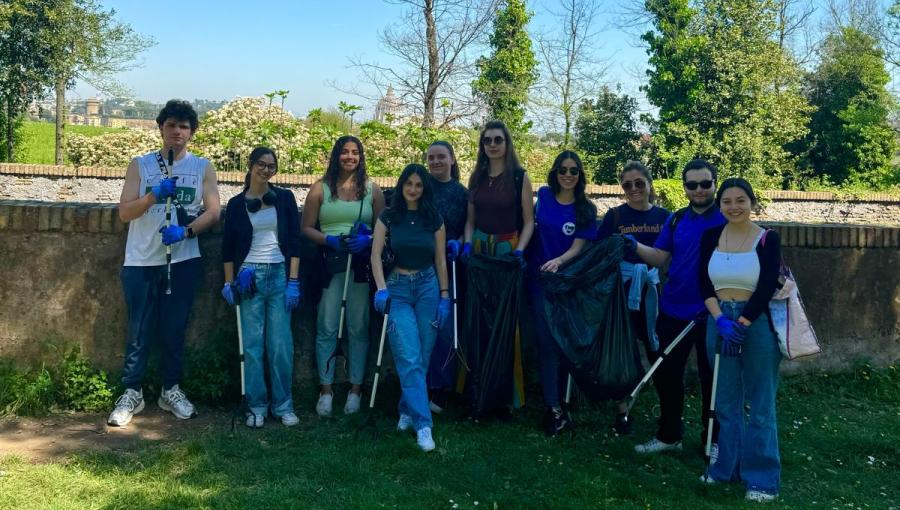Understanding Individual Wellbeing: JCU Welcomes Italian Red Cross
Should mental health and wellbeing be treated as an individual or as a collective social matter? In order to try to answer this question, the JCU Office of Community Service in collaboration with the Office of Health and Wellbeing, invited psychotherapist Alessia Bernardi of the Italian Red Cross on September 26. Bernardi was accompanied by representatives of the Social Area of the Red Cross, Flavia Cuniolo and Giorgio de Acutis. The Red Cross team presented an analysis of individual wellbeing through two different scientific models: the medical and the bio-psycho-social.
The first approach to the question, known as the “medical” or “clinical” model, looks at health as the absence of sickness. Intervention to treat sickness is focused on rehabilitation in order to solve the deficit. In this case, the patient is identified with the disease. Simply put, the patient’s life is defined by whatever disease affects them.
In 2001, researchers and scientists proposed a new approach to describe health and wellbeing: the bio-psycho-social model. This model turned mental health into something that is no longer an individual matter, but rather a collective social issue.
The bio-psycho-social model emphasizes the fact that psychological disorders take a substantial amount of time and dedication, as well as the help of others, before one can start to heal. This differs from the clinical model, which treats sickness as a physiological deficit that can be treated within a shorter time frame with the help of medication. Moreover, the bio-psycho-social model of health expands upon the importance of understanding one’s emotions. Individuals with unbalanced health and wellbeing tend to suffer from alexithymia, a disorder characterized by the inability to identify and describe emotions. This leads to dysfunctional behavior such as substance abuse, alcoholism, depression and panic attacks. These elements of behavior are viewed as an attempt to “rid oneself of emotions,” instead of actively working through them. Disorders such as alexithymia arise in periods of social isolation, as they are connected to a lack of emotional awareness, social attachment, and interpersonal relating. This is why the bio-psycho-social model prioritizes social connection over pharmaceutical cures. Ultimately, mental health is a social matter that cannot be addressed only through medication. Without the help and support of others, individuals may never find a constructive way to live with their psychological disorders.
The Red Cross created “Project Lisa,” a social inclusion program founded upon the principles of the bio-psycho-social model, in which health is treated as a social matter. The program helps people with restricted freedom, such as those under house arrest, in prison, or rehabilitation centers. Project Lisa focuses on people between the ages of 25 and 54 who are in the final phase of detention, which can range from six to 18 months. Through this program, they receive job training, learn skills such as gardening, and are provided with legal assistance. Furthermore, individuals can meet with psychologists and participate in workshops on empowerment and art therapy. Project Lisa gives people the chance to interact with others in a safe and controlled environment where they can work on bettering their mental stability through building relationships with others.
One of the life skills that Project Lisa aims to teach is the ability to recognize and effectively express emotions. Other skills that individuals can learn are the capacity to have a loving attitude towards self and others, as well as the ability to cope with change and uncertainty. Project Lisa aims to provide a new definition of health and wellbeing, one that extends past the clinical model.
(Alice Fowler)






